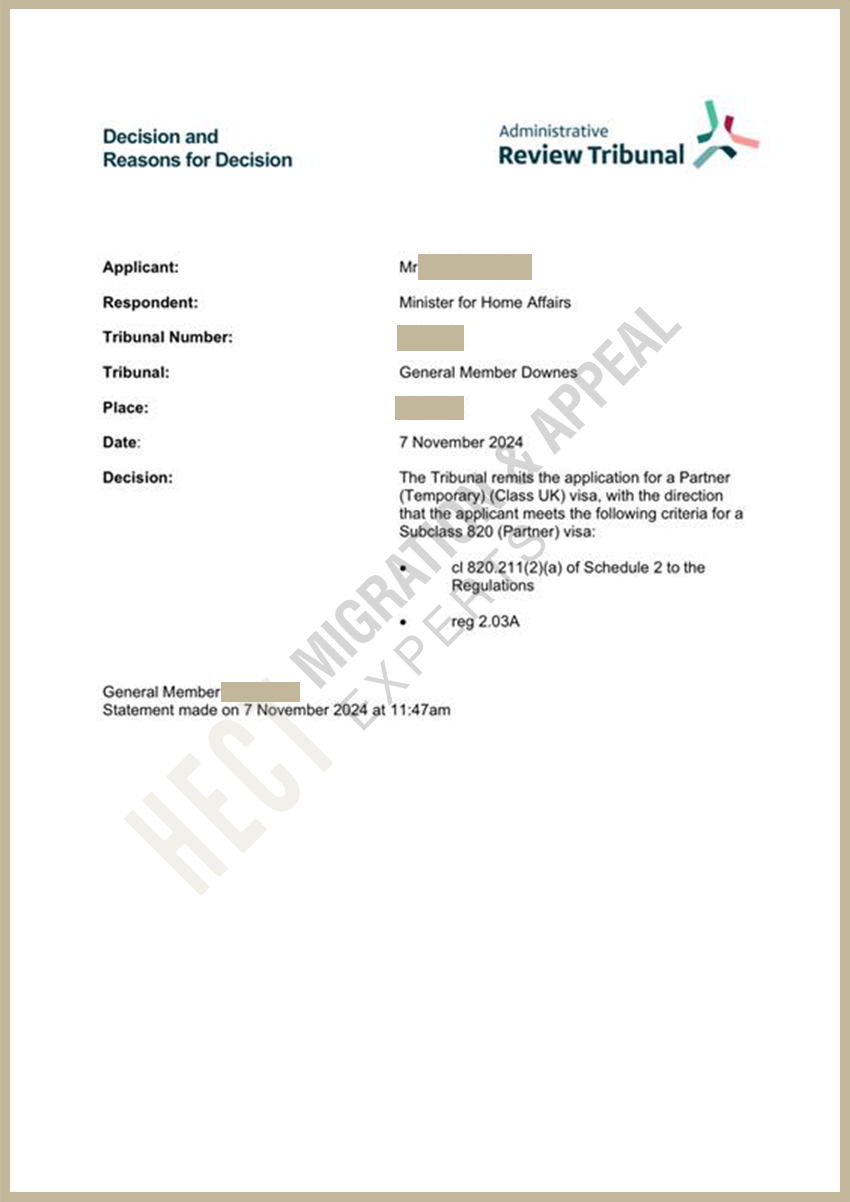Case Summary
This case involves a DIY partner visa application that was refused after submission. The applicant and sponsor had been together for over a year before submitting the partner visa application. At the time, the sponsor was pregnant. The sponsor had previously successfully submitted a DIY partner visa application many years ago, so both believed their genuine relationship would not be questioned and assumed the application process would be straightforward. As a result, the application was hastily completed before the applicant’s visa expired, with only a few documents attached.
After submission, the DoHA issued seven requests for additional documentation and provided multiple phone reminders. However, the applicant never responded to these requests. Eventually, three years after submission, the partner visa was refused.
In partner visa applications, it is rare for the DoHA to request additional documents multiple times. Typically, applicants might receive one or two requests, and in some cases, no requests at all before a refusal. However, despite the DoHA granting them numerous opportunities, the applicants failed to seize these chances.
After the refusal, the client contacted us for assistance with appealing to the Administrative Appeals Tribunal (AAT). At this point, the applicant and sponsor still held the belief that “having a child” meant the visa would automatically be approved. During the appeal process, we repeatedly requested they provide the missing documents. Unfortunately, they were unwilling to cooperate, and at times, they were uncontactable.
Even as the hearing approached, their attitude towards preparation remained passive. Despite our repeated efforts to help them organize their case history, they continued to show confusion about the details of their relationship, and their documents remained incomplete, despite multiple reminders. They even claimed that they had already provided all the necessary materials. With little time left before the hearing, we gathered whatever documents they were willing to provide.
However, during the hearing, the couple still failed to take the process seriously and frequently gave incorrect answers to the tribunal officer’s questions. Given the limited documentation and the couple’s underwhelming performance during the hearing, the officer struggled to find sufficient grounds to support the application. Due to the lack of adequate documentation and their poor performance during the hearing, the officer directly stated that if they could not provide further evidence of their relationship, even with a child, the refusal would likely be upheld. In a critical moment, we made an oral statement in the hearing, securing a 14-day extension to submit additional documents.
It was only then that the applicant and sponsor realized the seriousness of the situation. Over the next 14 days, we carefully analyzed the issues raised during the hearing, guided the clients to gather crucial documents, and addressed the tribunal officer’s questions one by one. We also assisted them in submitting a legal submission to further clarify the case and present a comprehensive explanation of their relationship and the visa application. Ultimately, we successfully had the case referred back to the immigration department for re-assessment.
It’s important to note that the applicant and sponsor’s belief that “having a child” would guarantee approval was clearly challenged during the hearing. The tribunal officer explicitly stated that having a child alone was not sufficient grounds for visa approval. This case took over five years from the initial application to the final result from the AAT, including the transition from AAT to ART (a change in the institution’s name), before it was referred back to the DoHA for re-assessment.
Approval Letter

